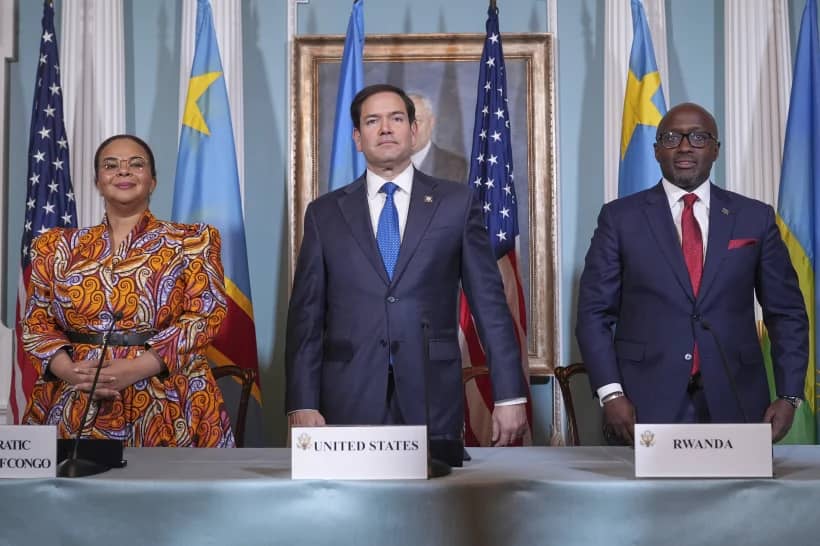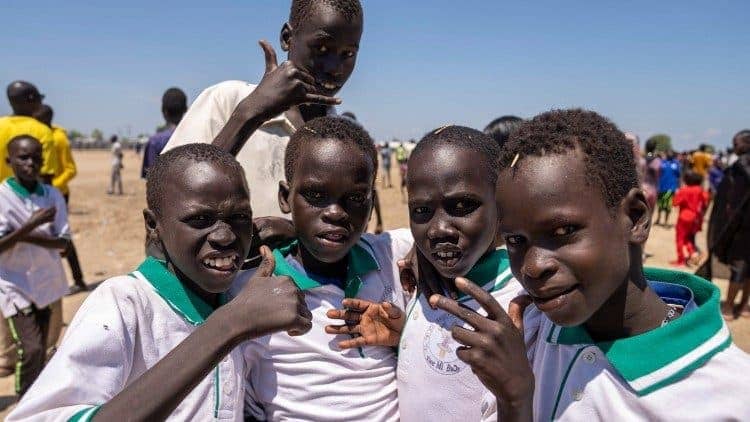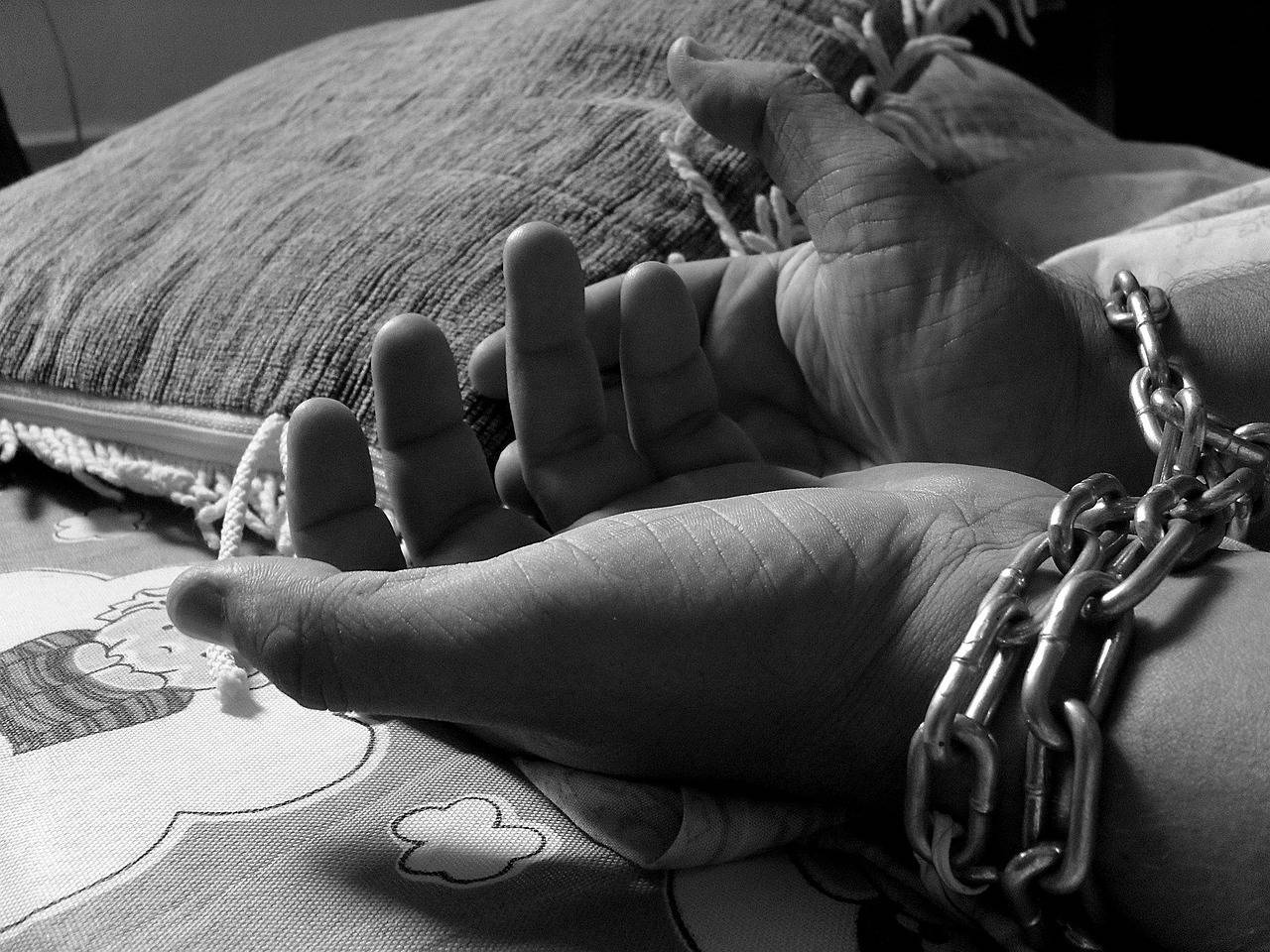YAOUNDÉ, Cameroon – Cardinal Dieudonne Nzapalainga of Bangui has completed a 10-day pastoral visit to the nine parishes of Bossangoa Diocese to the northwest of the Central African Republic.
The diocese has been a focal point of the ongoing conflict in the country between the remnants of the predominantly Muslim Séléka rebel force which briefly took over the country in 2013, and the mostly Christian Anti-balaka defense groups that emerged at the time.
In 2013, President François Bozize – a Christian – was overthrown in a coup led by members of the Séléka.
The leader of the Séléka, Michel Djotodia, then became the first Muslim president of the country.
But Djotodia soon lost control of the rebels who brought him to power, and the Séléka militia committed untold atrocities: Murdering, maiming, and raping large numbers of people, especially those loyal to the deposed president Bozizé.
Former members of the army then joined the Anti-Balakas, which until then had been community-based vigilante squads. With military training and leadership, the Anti-Balakas retook the capital, Bangui, on December 5, 2013.
The seizure of power by Anti-balaka units represented an important shift in the country’s power dynamics.
They engaged in the same violent reprisals as the Séléka had done when they were in control; but this time targeting communities suspected of being sympathetic to the Séléka, and then extending their murderous campaign to all Muslims.
Pope Francis has taken a personal interest in the country, and ignored objections to visit Bangui on November 29-30, 2015. During his short stop, he visited a refugee camp, and met with local Muslim leaders. The following April, Francis met with the newly elected president Faustin Archange Touadéra – who came to power a few weeks after the pope’s visit to Bangui – at the Vatican.
However, despite the Vatican efforts, peace has not returned to the country. A new peace deal was signed in February between the government and over a dozen militia groups, but it has been slow to take hold.
During his 10-day visit to Bossangoa, Nzapalainga came face-to-face with the ravages of war: Burnt homes, displaced people, and destroyed and damaged educational and health infrastructure.
In 2013, the area was ravaged by the Séléka rebels on their march to Bangui; after the Anti-balaka were formed, they sought revenge.
“Confusion set in, associating Séléka with Muslims and Anti-balaka with non-Muslims, Christians or animists,” explained Bishop Nestor-Désiré Nongo-Aziagbia, who heads the Bossangoa Diocese.
Christians make up about 80 percent of the population of the Central African Republic, and Muslims about 15 percent.
The Muslim population is concentrated in the north of the country that touches on the Sahel region of Africa, although there are many Muslim traders in the south.
Thanks to Nzapalainga, “General” Alabib, who leads the local Séléka fighters in Kouki, a village within the diocese, and Stanislas Badjima, the leader of the Anti-balaka in the same area, were able to meet for the first time in two years on Dec. 12.
The cardinal’s reputation amongst the people is so high that even the warring militias believe he possesses almost magical powers.
“It’s the first time that we find ourselves in the same spot in two years,” Badjima told La Croix, the French Catholic newspaper.
The cardinal seized the opportunity to challenge the fighters on both sides.
“You say you want peace, and you signed an accord in 2017, but what did you do with it?” Nzapalainga asked.
“You have to allow for the free circulation of people and goods on this Kouki-Nana-Bakassa road. There [in Bakassa], they [militias] are ready to come to the dialogue table. Are you ready to join them?”
La Croix reported that the two antagonists put up their hands in the air in unison.
“There has been so much killing and so much destruction,” Badjima said. “All we want now is peace. We want to drop our arms and I think the cardinal can help us do that.”
Nzapalainga was in the area not only to meet the fighters but also to attend the inauguration of the locality’s new mosque.
“We waited for Cardinal Nzapalainga to be present to inaugurate our new mosque. The former one had been burnt,” explained the Imam of Kouki, Abdou Samat Mohamed Ousmane.
“We wanted him to be present because he is a man of peace who has always worked for the unity of the country. We want to show him our goodwill and encourage him to continue in his efforts,” the imam said.
In that part of the country, most of the inhabitants are Muslims who had fled to Kouki, near the border with Chad, after their Christian neighbors in the urban centers of Nana Bakassa and Bossangoa accused them of being members or accomplices of Séléka, or their accomplices.
“If a Muslim tries to go to Nana Bakassa or Bossangoa, he will be killed,” La Croix quoted one Muslim youth who fled Nana Bakassa.
Nzapalainga was in Nana Bakassa on Dec. 11, where he met locals to strike a deal with them to allow Muslims in the area to return to their homes. But the return, the cardinal noted, is not going to be so easy.
“There are also interests at stake. Some people have occupied the houses of those who fled; others have seen their businesses flourish in the absence of Muslims who traditionally are businesspersons and animal breeders,” he said.
The cardinal invited all the warring parties to accept disarmament as the only acceptable way to peace and exhorted them to stop attacking government workers.
“If civil servants don’t come to Kouki again and if NGOs are fleeing, it’s your fault, because you keep attacking them,” he said.
Addressing a population taken hostage by a small group of Anti-balaka fighters, the cardinal said: “Justice shall be administered slowly, but it shall be administered.”
“You used to be farmers, but you decided to take up arms and today you call yourselves colonels and generals. But be careful: In the Bangui prison, I saw so many generals who today have dropped their weapons,” Nzapalainga said.
In his remarks, he called for a return to peace.
“We pray the Our Father and we say, ‘Forgive us our sins, as we forgive those who have sinned against us.’ But those of us who have lost a parent in this crisis, who have lost a home, are we ready to forgive?” he said. “Disarm your hearts and you shall have peace.”
He said he was trying to demystify the anti-Balaka among the local population.
“There is need to take the bull by the horns. Here, the role of the anti-Balaka is a taboo subject. I am demystifying it. Among them, there are some who are at crossroads. I extend a hand of fellowship to them. I tell them: It’s your day of freedom.”
The cardinal’s visit came just days before Bozize returned from exile on Dec. 16.
The ex-president – whose misgovernment some blame for stirring up the original Séléka revolt – returns to the country ahead of the presidential elections planned for 2020.
Crux is dedicated to smart, wired and independent reporting on the Vatican and worldwide Catholic Church. That kind of reporting doesn’t come cheap, and we need your support. You can help Crux by giving a small amount monthly, or with a onetime gift. Please remember, Crux is a for-profit organization, so contributions are not tax-deductible.














